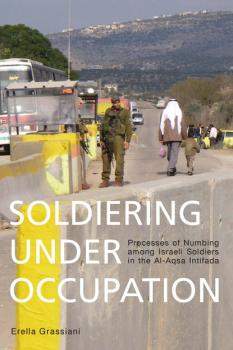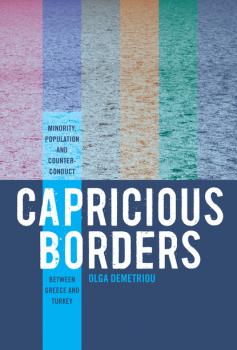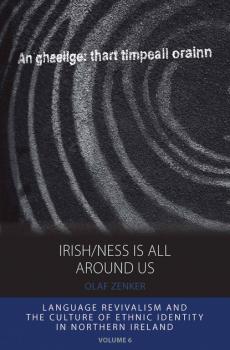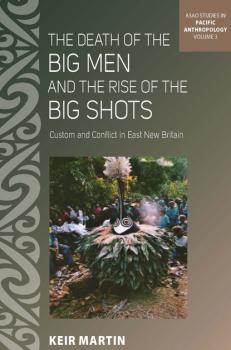ТОП просматриваемых книг сайта:
Культурология
Различные книги в жанре Культурология, доступные для чтения и скачиванияАннотация
Too often, anthropological accounts of ritual leave readers with the impression that everything goes smoothly, that rituals are «meaningful events.» But what happens when rituals fail, or when they seem «meaningless»? Drawing on research in the anthropology of Christianity from around the globe, the authors in this volume suggest that in order to analyze meaning productively, we need to consider its limits. This collection is a welcome new addition to the anthropology of religion, offering fresh debates on a classic topic and drawing attention to meaning in a way that other volumes have for key terms like «culture» and "fieldwork.
Аннотация
At the start of the 1990s, there was great optimism that the end of the Cold War might also mean the end of the «refugee cycle» – both a breaking of the cycle of violence, persecution and flight, and the completion of the cycle for those able to return to their homes. The 1990s, it was hoped, would become the «decade of repatriation.» However, although over nine million refugees were repatriated worldwide between 1991 and 1995, there are reasons to believe that it will not necessarily be a durable solution for refugees. It certainly has become clear that «the end of the refugee cycle» has been much more complex, and ultimately more elusive, than expected. The changing constructions and realities of refugee repatriation provide the backdrop for this book which presents new empirical research on examples of refugee repatriation and reconstruction. Apart from providing up-to-date material, it also fills a more fundamental gap in the literature which has tended to be based on pedagogical reasoning rather than actual field research. Adopting a global perspective, this volume draws together conclusions from highly varied experiences of refugee repatriation and defines repatriation and reconstruction as part of a wider and interrelated refugee cycle of displacement, exile and return. The contributions come from authors with a wealth of relevant practical and academic experience, spanning the continents of Africa, Asia, Central America, and Europe.
Аннотация
The death of authority figures like fathers or leaders can be experienced as either liberation or loss. In the twentieth century, the authority of the father and of the leader became closely intertwined; constraints and affective attachments intensified in ways that had major effects on the organization of regimes of authority. This comparative volume examines the resulting crisis in symbolic identification, the national traumas that had crystallized around four state political forms: Fascist Italy, Nazi Germany, Imperial Japan, and East European Communism. The defeat of Imperial and Fascist regimes in 1945 and the implosion of Communist regimes in 1989 were critical moments of rupture, of «death of the father.» What was the experience of their ends, and what is the reconstruction of those ends in memory? This volume represents is the beginning of a comparative social anthropology of caesurae: the end of traumatic political regimes, of their symbolic forms, political consequences, and probable futures.
Аннотация
By working with underserved communities, anthropologists may play a larger role in democratizing society. The growth of disparities challenges anthropology to be used for social justice. This engaged stance moves the application of anthropological theory, methods, and practice toward action and activism. However, this engagement also moves anthropologists away from traditional roles of observation toward participatory roles that become increasingly involved with those communities or social groupings being studied. The chapters in this book suggest the roles anthropologists are able to play to bring us closer to a public anthropology characterized as engagement.
Аннотация
Often, violent behavior or harassment from a soldier is dismissed by the military as unacceptable acts by individuals termed, “rotten apples.” In this study, the author argues that this dismissal is unsatisfactory and that there is an urgent need to look at the (mis)behavior of soldiers from a structural point of view. When soldiers serve as an occupational force, they find themselves in a particular situation influenced by structural circumstances that heavily influence their behavior and moral decision-making. This study focuses on young Israeli men and their experiences as combat soldiers in the Israeli Defense Forces (IDF), particularly those who served in the “Occupied Palestinian Territories” (OPT) during the “Al Aqsa Intifada ,” which broke out in 2000. In describing the soldiers’ circumstances, especially focusing on space, the study shows how processes of numbing on different levels influence the (moral) behavior of these soldiers.
Аннотация
Borders of states, borders of citizenship, borders of exclusion. As the lines drawn on international treaty maps become ditches in the ground and roaming barriers in the air, a complex state apparatus is set up to regulate the lives of those who cannot be expelled, yet who have never been properly ‘rooted’. This study explores the mechanisms employed at the interstices of two opposing views on the presence of minority populations in western Thrace: the legalization of their status as établis (established) and the failure to incorporate the minority in the Greek national imaginary. Revealing the logic of government bureaucracy shows how they replicate difference from the inter-state level to the communal and the personal.
Аннотация
Focusing on Irish speakers in Catholic West Belfast, this ethnography on Irish language and identity explores the complexities of changing, and contradictory, senses of Irishness and shifting practices of 'Irish culture' in the domains of language, music, dance and sports. The author’s theoretical approach to ethnicity and ethnic revivals presents an expanded explanatory framework for the social (re)production of ethnicity, theorizing the mutual interrelations between representations and cultural practices regarding their combined capacity to engender ethnic revivals. Relevant not only to readers with an interest in the intricacies of the Northern Irish situation, this book also appeals to a broader readership in anthropology, sociology, cultural studies, history and political science concerned with the mechanisms behind ethnonational conflict and the politics of culture and identity in general.
The Death of the Big Men and the Rise of the Big Shots - Keir Martin
ASAO Studies in Pacific AnthropologyАннотация
In 1994, the Pacific island village of Matupit was partially destroyed by a volcanic eruption. This study focuses on the subsequent reconstruction and contests over the morality of exchanges that are generative of new forms of social stratification. Such new dynamics of stratification are central to contemporary processes of globalization in the Pacific, and more widely. Through detailed ethnography of the transactions that a displaced people entered into in seeking to rebuild their lives, this book analyses how people re-make sociality in an era of post-colonial neoliberalism without taking either the transformative power of globalization or the resilience of indigenous culture as its starting point. It also contributes to the understanding of the problems of post-disaster reconstruction and development projects.
Аннотация
People travel as never before. However, anthropological research has tended to focus primarily on either labor migration or on tourism. In contrast, this collection of essays explores a diversity of circumstances and impetuses towards contemporary mobility. It ranges from expatriates to peripatetic professionals to middle class migrants in search of extended educational and career opportunities to people seeking self development through travel, either by moving after retirement or visiting educational retreats. These situations, however, converge in the significant resources, variously of finances, time, credentials or skills, which these voyagers are able to call on in embarking on their respective journeys. Accordingly, this volume seeks to tease out the scope and implications of the relatively privileged circumstances under which these voyages are being undertaken.
Аннотация
Marcel Mauss (1872-1950) never completed his Doctoral thesis on prayer. Yet his scarcely mentioned introduction (Books I and II) of 176 pages and privately printed in 1909, can be seen as some of his most important work. His argument that much of prayer is a social act will be of great interest to anthropologists, sociologists and theologians. Here, the first English translation to be published, is preceded by a general introduction by W.S.F.Pickering and finally a specific commentary on Mauss's use of ethnographic material.










